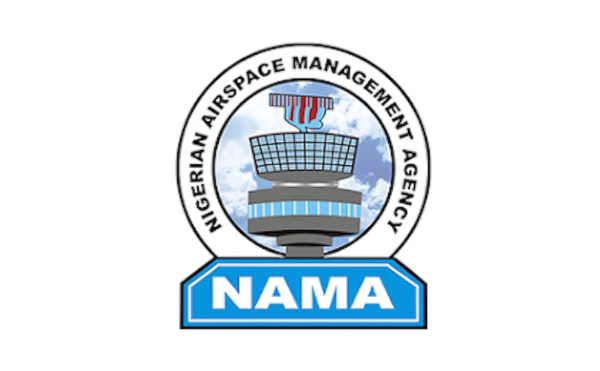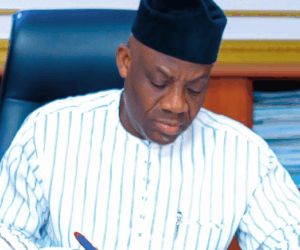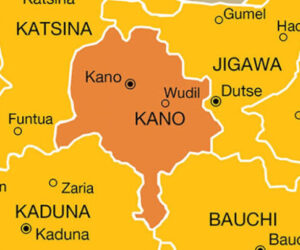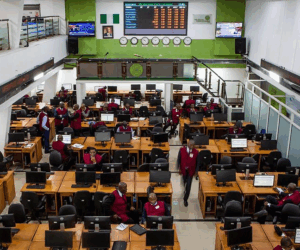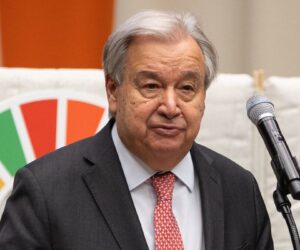The Director General of the Nigerian Airspace Management Agency (NAMA), Farouk Umar, has stated that the current charge of N11,000 imposed on airlines per flight is outdated and no longer sustainable in view of prevailing economic realities.
Mr Umar made this known on Tuesday in Abuja during a retreat organised by the House of Representatives Committee on Aviation.
The retreat was themed “Emerging Trends in Global Aviation: Sustainability, Technology and Digital Transformation.”
Speaking at the event, the NAMA boss explained that the existing tariff, which was introduced in 2008, has remained unchanged despite the significant rise in the cost of aviation operations, inflation, and technological investments over the years.
He noted that while airlines have adjusted their ticket prices multiple times to reflect changing market conditions, the agency continues to operate under an obsolete fee structure that undermines its capacity to deliver on its mandate.
“In 2008, NAMA introduced the N11,000 charge. It is important for the public to understand that this amount is charged per flight, not per passenger.
“For instance, from Lagos to Abuja, an airline pays just N11,000 to NAMA, irrespective of whether the aircraft carries 50 passengers or 200 passengers. At the time, airlines were charging an average of N16,000 for an economy class ticket. Today, however, the same economy ticket costs between N150,000 and N200,000, yet the charge to NAMA has remained stagnant at N11,000,” he said.
The DG stressed that as a cost-recovery agency, NAMA has continued to invest heavily in modernising the country’s aviation infrastructure, including procuring advanced landing systems, communication equipment, and surveillance technology, to meet international standards and ensure air safety.
He said despite these huge investments, the agency has been unable to adjust its fees accordingly.
“”Now, from 2008 to date, you and I know that they are collecting almost N150,000, or it’s hovering between N150,000 and N200,000 economic ticket, and yet we are still where we were, N11,000, and given the fact that we are cost recovery agents, we are supposed to recover from what we have invested. We’ve invested hugely in procuring improved landing system, surveillance system, communication system, and yet we keep modernising,” he said.
On the issue of stakeholder engagement, Mr Umar explained that NAMA has made repeated efforts to consult with airlines on the need to review the charges. However, he accused the airlines of being uncooperative and unfair in their responses.
“The truth of the matter is, the airlines have not been fair to the agency because we are not a charity organisation. We are a cost recovery agency, and yet they have been responding to economic prevailing circumstances, economic situation, and yet they don’t want to understand that we also go to the same markets. We procure these equipment hugely, and therefore there’s what you call cost recovery,” he warned.
Earlier, in his welcome address, the Chairman of the House of Representatives Committee on Aviation, Abdullahi Garba, described the retreat as a vital collaboration towards strengthening Nigeria’s aviation industry.
Represented by his deputy, Festus Akingbaso, the lawmaker said the exercise was aimed at equipping stakeholders with the knowledge and strategies required to improve airspace management and enhance legislative oversight.
“Our goal is to develop actionable plans and reinforce priorities that enhance aviation safety, infrastructure and regulatory compliance,” Mr Akingbaso said.
The N11,000 charge
The N11,000 fee currently charged by NAMA on each domestic flight was introduced in 2008 as a cost-recovery measure for services provided by the agency.
These services include air traffic control, navigation aids, aeronautical communication, and surveillance, functions critical to the safety and efficiency of Nigeria’s aviation system.
READ ALSO: Tinubu inherited economic ‘debris’ from Buhari – Ex-Speaker Dogara
At the time of its introduction, the N11,000 tariff was considered fair because airline ticket prices averaged about N16,000 for economy class, and operational costs were significantly lower.
The charge was not imposed per passenger but per aircraft, meaning that whether a plane carried 100 or 200 passengers, the airline paid only N11,000 for the entire journey.
This structure was designed to encourage compliance, ensure affordability, and maintain harmony between regulators and operators.
However, over the years, the aviation sector has undergone drastic changes. Rising fuel costs, inflation, currency devaluation, and the need for continuous investment in modern technology have increased the financial burden on NAMA.
Meanwhile, airlines have adjusted ticket fares to reflect these realities, with economy tickets now priced between N150,000 and N200,000 on popular domestic routes such as Lagos–Abuja.
Despite this sharp increase in revenues for airlines, NAMA’s charge has remained static for 17 years.

